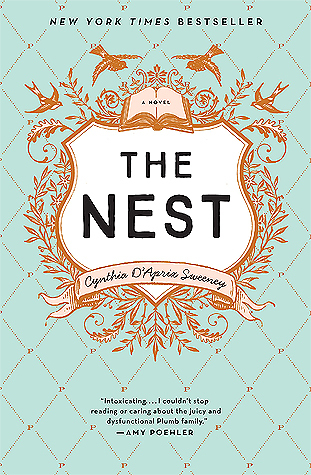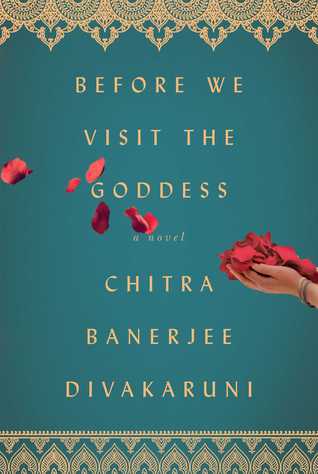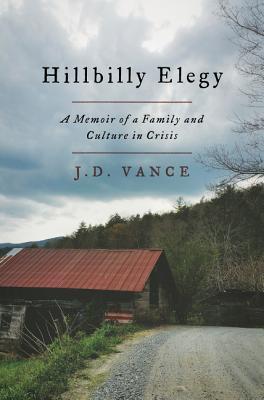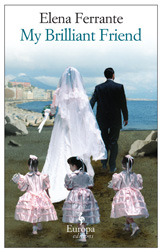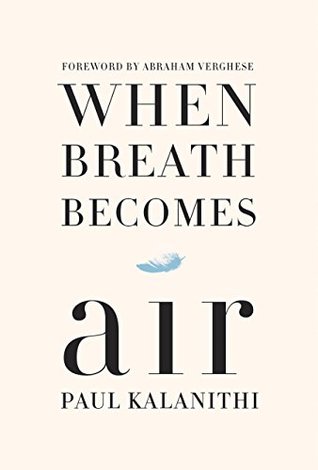I waited a few days after the Women's Marches to post this because I don't want to take away from what was a really positive event. I loved seeing pictures of friends across the country marching for reasons that I (largely) agree with. I love seeing democracy in action, and I especially loved seeing multiple generations marching together. (I've blogged about something along these lines!)
Having said that -- the bee that I can't get out of my bonnet is the way that pro-life feminists have been rejected by many this week. This combination of beliefs (pro-life + feminist) was in the news because there was a group of pro-life feminists that were added, and then removed, as partners in the Women's March. I'm not so concerned about this (because the leaders of the march made it clear that individual pro-lifers could march) as I am about all the conversation that followed this incident (on social media and in articles), showing that many feel that pro-lifers have no place in the feminist movement. I think pro-lifers should be included in the feminist movement - here's why, and here's what I think that looks like.
Why should feminists include / embrace pro-lifers?
1. Strength in numbers. The number of people who identify with with both feminism and pro-life beliefs is not marginal. According to this article, "more than half of millennial women who identify as feminists consider themselves pro-life (18 percent) or both pro-life and pro-choice (37 percent)." Of course, numbers alone are not enough - half the population is wrong about things all the time - but big numbers should be a reason to take an issue under consideration.
2. Because so many of our causes overlap. Some might wonder why pro-lifers would even want to be part of a group that promotes women's rights. It's because we (well, speaking only for myself, but i'm sure many others too) agree on TONS of things, including (but not limited to): equal pay for equal work; better maternity and family leave; robust public assistance programs (especially for child care and health care); better availability of birth control; and that our leaders should have respectful words, attitudes, and policies towards women.
3. Because some of our causes overlap not just despite, but because of, our different position on abortion. I am pro-life because I believe that life believes at conception -- but I do understand (particularly as a recently pregnant woman and a special needs mom) that asking a woman to carry a pregnancy to term and then care for the child who is born is a huge responsibility that can affect every single thing about her life and that she will not necessarily get help from anyone. And it is because of this that I support better access to birth control, and better supporting policies after birth for everything - maternity leave, child care, health care, etc. I (and probably most pro-life feminists) support these things both because they are pro-woman and because they will likely reduce the number of abortions. Even if we can't agree on the abortion question, we can work together productively on all these other things.
So what exactly do I, as a pro-lifer, want from the feminist movement?
I would like to be treated with respect rather than contempt - that even though we deeply disagree on the abortion issue, an acknowledgement that I'm not coming from a hateful place. A focus on how we can work together on the issues we agree on, rather than continued ugly argument about the thing we disagree on. I would love to never see another Internet comments section that generalizes about what all pro-lifers are like, and particularly that accuses all of us of being pro-birth rather than pro-life, but then does everything possible to exclude those of us who try to be pro-life from cradle to grave.
I would like to hear what you all think of this issue, but I also want to ask everyone to please be kind since this is a sensitive topic (disagreement is fine, of course). Everyone who's ever commented on my blog has been respectful, but in case this is the one time things go south, I want to put out the caveat that I will delete rude comments.
Thursday, January 26, 2017
Monday, January 23, 2017
Genetics Class 2017: Week 1
I'm starting a new online genetics course called Case Studies in Personalized Medicine.
Here's the course description: "This course will present short primers in genetics and mechanisms underlying variability in drug responses. A series of case studies will be used to illustrate principles of how genetics are being brought to bear on refining diagnoses and on personalizing treatment in rare and common diseases. The ethical and operational issues around how to implement large scale genomic sequencing in clinical practice will be addressed."
Why am I taking this course? My main motivation with these classes is always to learn as much as I can about how genetics works so that I can be in the best position to research and advocate for Joshua. It also lifts my spirits to put my brain to work :).
The target audience for this class is doctors with 5+ years of experience - so, as someone who could not even score an A in my undergrad Intro to Biology class, I'm sure I won't be in over my head at all. (Opposite day! Wish me luck!)
I'm going to blog my class notes each week (but this is the only time I'll put the link up on Facebook). These notes will not attempt to be a comprehensive summary of the course - they are things that I find interesting, or relevant to learning about chromosome disorders. If any of you follow along, it might give you a taste of whether you would want to take the course yourself, but will not in any way be a substitute for taking the course. Here's the first set of notes --
What I learned in Week One:
Here's the course description: "This course will present short primers in genetics and mechanisms underlying variability in drug responses. A series of case studies will be used to illustrate principles of how genetics are being brought to bear on refining diagnoses and on personalizing treatment in rare and common diseases. The ethical and operational issues around how to implement large scale genomic sequencing in clinical practice will be addressed."
Why am I taking this course? My main motivation with these classes is always to learn as much as I can about how genetics works so that I can be in the best position to research and advocate for Joshua. It also lifts my spirits to put my brain to work :).
The target audience for this class is doctors with 5+ years of experience - so, as someone who could not even score an A in my undergrad Intro to Biology class, I'm sure I won't be in over my head at all. (Opposite day! Wish me luck!)
I'm going to blog my class notes each week (but this is the only time I'll put the link up on Facebook). These notes will not attempt to be a comprehensive summary of the course - they are things that I find interesting, or relevant to learning about chromosome disorders. If any of you follow along, it might give you a taste of whether you would want to take the course yourself, but will not in any way be a substitute for taking the course. Here's the first set of notes --
What I learned in Week One:
- This week started with a primer in the basics of genetics - things like what is a chromosome, what is DNA, what's a genetic variant, what makes a good study. For example:
- In the 23 chromosome pairs, one comes from the father and one comes from the mother.
- Mitochondrial DNA comes exclusively from the mother.
- RNA is single strand DNA.
- Most DNA is non-coding and it's job is to help regulate the encoding DNA.
- 1% of DNA actually encodes proteins.
- 6 billion base pairs, 25,000 genes in a human cell.
- There were a couple modules on what makes a good study and what makes a good experiment. I didn't take notes on these.
- Next, there was a lot of information about drug reactions. Honestly, a lot of this was beyond my ability to understand without taking some additional biology and chemistry classes. But here's a little bit:
- Adverse drug reactions are a leading cause of hospitalizations and a not insignificant cause of death - this is why everyone you talk to in a hospital stay asks about drug allergies and reactions.
- There are lots of reasons why drugs don't work on a particular patient - genetics, reaction with other drugs they're taking, other environmental factors (food, exercise, etc.) cause interaction, patient does not take drug as prescribed, pharmacy gives wrong drug or wrong dose, etc.
- s
Sunday, January 8, 2017
Books I read in 2016
Here's a visual of the books I read in 2016. The covers are arranged strangely due to my lack of skill at fixing a bad cut and paste job :). Scroll down to the bottom for my favorites.
MY 2016 BOOKS
it was amazing




it was amazing

it was amazing


This is my annual blog post reviewing books I read last year. If you're interested in learning more about any of the books pictured above, here is a link where you can click on any of the covers and get more information. And here are the "best of" picks:
Funniest: "One More Thing: Stories and Other Stories" by B.J. Novak
Truest to life: "Shattered Prayers" by Kenny Ching
Highly, highly recommended devotional: "The Songs of Jesus" by Tim Keller
Book from my childhood that best stood the test of time: "Little Women" by Louisa May Alcott
Most useless book of the year (so glad a potty training manual didn't take this award for the third year in a row!!!): "Dog Training Handbook: A 10 Week Training Course"
Best fiction: In a nice turnaround from last year, I enjoyed every fiction book I read this year, so it was hard to narrow it down to a top 5 - but here they are (in random order):
- "A Little Life" by Hanya Yanagihara (this was my favorite book of the year)
- "The One in a Million Boy" by Monica Wood
- "Eligible" by Curtis Sittenfield
- "The Martian" by Andy Weir
- "Modern Lovers" by Emma Straub
Best nonfiction (also in random order):
- "Dreamland: The True Tale of America's Opiate Epidemic" by Sam Quinones
- "Amusing Ourselves to Death" by Neil Postman
- "Shattered Prayers" by Kenny Ching
- "Evicted" by Matthew Desmond
- "When Breath Becomes Air" by Paul Kalanithi
The reading theme that stuck with me this year is that books, both fiction and non-fiction, are such a good way to learn about subcultures other than your own. Not nearly as good as friendship, or actually living the other's experience, but definitely an easy and helpful first step. Here are books I read this year that gave me a glimpse of subcultures that have been in the news and that are different than mine:
- "LaRose" by Louise Erdrich (takes place in North Dakota, main characters are Native American, so helpful in understanding some of the dynamics with the North Dakota Access Pipeline)
- "Between the World and Me" by Ta Nehisi-Coates (helpful in understanding the perspective of a young black male and some of the motivation behind Black Lives Matter)
- "Hillbilly Elegy" by J.D. Vance (helpful in understanding white Appalachian culture, one of the groups credited with helping elect Donald Trump as president).
- "Dreamland: The True Tale of America's Opiate Epidemic" by Sam Quinones (helpful in understanding the prescription pill epidemic and how it's ravaging Rust Belt and Appalachian towns - again with the Donald Trump voters)
- "Evicted" by Matthew Desmond (helpful in understanding both poor white people who struggle with keeping housing and poor people of color who struggle with housing, and goes a little bit into how their situations are different and how each group feels about that).
- "Enough: Why the World's Poorest Starve in an Age of Plenty" by Roger Thurow and Scott Kilman (helpful for learning about world hunger)
What books have you read recently that you loved?
Sunday, January 1, 2017
2017 resolutions
This is my annual resolutions blog -- accountability for last year's resolutions, and setting the New year's resolutions.
The 2016 Resolutions:
The theme of my goals in 2016 was to become more self sufficient, and I think I'm slowly getting better at that - doing things (like changing a light bulb or setting up the Christmas tree) that I previously would have relied on Kenny to do. But with my specific resolutions, it was a pretty iffy year.
1) Learn to fill the car tires with air. FAIL. I watched a You Tube video on this one, and that's as far as I got. Still need to learn this life skill.
2) Learn to hang a picture. PARTIAL CREDIT. I hung up multiple pictures this year, but all of them were placed in holes that were already in the wall - none of them required me to hammer a nail or use a level, which was the challenge that I was looking to master. But, I did hang a couple pictures, so not a total loss.
3) Grow at least one outdoor plant that survives the season. SUCCESS! I got one marigold to grow, from seed (pictured above)! There were lots of other attempted plants (tomatoes, green beans, herbs) that did not take off, but somehow the marigold made it.
2017 resolutions:
For the upcoming year, I'm going back to my usual practice of setting one goal each in the 3 areas of health, learning, and spirituality.
1. Complete the Journal Jog (a 5 mile race in the fall). I'm starting from square one getting back into running and I haven't figured out a great plan for how to fit regular exercise back into my life. But I've found that the best way to figure it out is to set a goal, preferably something that you have to pay money for and complete with or in front of other people - and then you figure out ways to squeeze in training for the goal.
2. Complete a Coursera course on genetics. This is a repeat of the learning goal I set 2 years ago, but I found that course to be beneficial in understanding what's going on with Joshua, and Coursera has multiple classes on genetics, and the field of genetics is changing so fast that even the rudimentary knowledge that I gained 2 years ago is probably already out of date. I'm hoping to take this one.
3. Have a daily schedule of "proactive" prayer. I pray pretty regularly in response to things - when something hard is happening to me, or my friends and family. But I would like to get better about praying for the people in my life more regularly and not just when some specific thing is going on. I am much better about staying on task with things if I turn it into a program, so I'm assigning each day of the week to a category (such as "extended family", "church", "special needs families", "politicians / world leaders", etc.), and then also including daily time for each of my immediate family members.
What are your resolutions?
The 2016 Resolutions:
The theme of my goals in 2016 was to become more self sufficient, and I think I'm slowly getting better at that - doing things (like changing a light bulb or setting up the Christmas tree) that I previously would have relied on Kenny to do. But with my specific resolutions, it was a pretty iffy year.
1) Learn to fill the car tires with air. FAIL. I watched a You Tube video on this one, and that's as far as I got. Still need to learn this life skill.
2) Learn to hang a picture. PARTIAL CREDIT. I hung up multiple pictures this year, but all of them were placed in holes that were already in the wall - none of them required me to hammer a nail or use a level, which was the challenge that I was looking to master. But, I did hang a couple pictures, so not a total loss.
3) Grow at least one outdoor plant that survives the season. SUCCESS! I got one marigold to grow, from seed (pictured above)! There were lots of other attempted plants (tomatoes, green beans, herbs) that did not take off, but somehow the marigold made it.
2017 resolutions:
For the upcoming year, I'm going back to my usual practice of setting one goal each in the 3 areas of health, learning, and spirituality.
1. Complete the Journal Jog (a 5 mile race in the fall). I'm starting from square one getting back into running and I haven't figured out a great plan for how to fit regular exercise back into my life. But I've found that the best way to figure it out is to set a goal, preferably something that you have to pay money for and complete with or in front of other people - and then you figure out ways to squeeze in training for the goal.
2. Complete a Coursera course on genetics. This is a repeat of the learning goal I set 2 years ago, but I found that course to be beneficial in understanding what's going on with Joshua, and Coursera has multiple classes on genetics, and the field of genetics is changing so fast that even the rudimentary knowledge that I gained 2 years ago is probably already out of date. I'm hoping to take this one.
3. Have a daily schedule of "proactive" prayer. I pray pretty regularly in response to things - when something hard is happening to me, or my friends and family. But I would like to get better about praying for the people in my life more regularly and not just when some specific thing is going on. I am much better about staying on task with things if I turn it into a program, so I'm assigning each day of the week to a category (such as "extended family", "church", "special needs families", "politicians / world leaders", etc.), and then also including daily time for each of my immediate family members.
What are your resolutions?
Subscribe to:
Posts (Atom)











